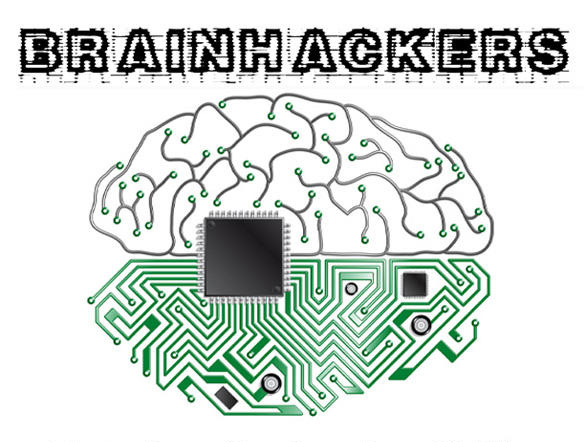

Café Scientifique News:
Free food, fun and an interesting topic are on the menu at Tuesday’s Café Scientifique.
James Forsythe of the Brain Hackers Association will present Essential Brain Science: Twelve Basic Principles Everyone Should Know, in the Jeannette Wallace Hall, in Building 5 on the University of Los Alamos campus, 4000 University Dr.
Food is served at 6:45 p.m., the talk is 7-8:30 p.m. and open to area teens.
Presenter James Forsythe’s Essay and Bio:
Every experience that we have is mediated by our brain. Our performance in every activity is a product of how well our brain functions. Our basic happiness and satisfaction results from biochemical processes occurring within our brains. No other field of science more directly bears upon our everyday effectiveness, productivity and happiness than brain science, or “neuroscience.” Furthermore, there are few careers for which a basic understanding of brain processes and their relationship to behavior and psychological experiences is not beneficial. Today, based on the number of scientists, publications and researchers participating in professional organizations, there is no field of science more active than brain science. Unfortunately, much of the information regarding brain science that is available to K-12 students consists of either articles and books within the popular press that are often of questionable credibility and academic publications that require considerable background knowledge to fully comprehend.
This talk will present 12 basic principles that everyone should know about how their brain functions within everyday activities. In many cases, these principles dispel common misunderstandings regarding brain function. For example, the relationship between the brain and the body is frequently described using the analogy of a robot, where the brain is equated to a robot computer controller. This is a false analogy because as stated in the first principle, “there is a two-way interaction between the brain and most of the other major biological systems of the body.” This principle is exemplified by the relationship between the brain and the respiratory system. Malfunctions of the respiratory system which impede oxygen flow to the brain lead to diminished brain function. On the other hand, one can actively control their breathing, with altered breathing produce measurable effects on brain and cognitive performance.
With each principle, direct connections may be drawn to everyday life. For example, with the principle stated above concerning the two-way interaction between the brain and other biological systems, activities that promote the overall health of the body lead to enhanced brain function. This relationship is evidenced in numerous research studies that have shown improved cognitive performance with both regular and immediate bouts of physical exercise. Similarly, there are direct applications of each of the other principles to everyday life, with the opportunity to improve performance and satisfaction across various endeavors.
About the Presenter:
James Forsythe – I took an unusual path to get to where I am today. I grew up in a rural area of west Tennessee where most teens usually did not finish high school and start to work by the time they were 16 years old. I left school mid-way through 10th grade and went to work in the construction industry. This was a great experience where I learned a lot and was regularly posed with interesting challenges.
When I was 19, my family moved to a rural area in California where I continued doing construction work. At some point, it became apparent to me that I wasn’t meeting any girls and something needed to change. That’s when the idea occurred to me to try a class at the local community college, since I knew there would be lots of girls there. My first class was chemistry, which seemed easy. A couple of semesters later, I was going to school full-time and working part-time, and was on course to get my bachelor’s degree.
Ten years after my first community college class, I graduated with my PhD in Cognitive Psychology. I still felt very rooted in practical, everyday problems, and instead of pursuing an academic career as a college professor, my first job after college was working in the field of Human Factors. This is an area where experts in human performance work with engineers to develop more effective technology products. For me, I had emphasized neuroscience throughout my time in college and I focused on “applied neuroscience,” or using knowledge of the brain to understand why people performed better or worse in different situations.
In 1993, I came to New Mexico where I took a job at Sandia National Laboratories. I was with Sandia for 23 years before retiring last February. During this time, I had an opportunity to work on a wide range of projects. All of them had a common element, “how can technology be applied to improve human performance?” Primarily, my research focused on understanding what factors distinguish individuals in a given field who might be categorized as either novice, competent, expert or elite performers, and how can this progression be improved.
During this time, my favorite project was one in which for about six years I worked with the research group at Mercedes Benz. This meant that I got to make regular trips to Stuttgart in Germany where my colleagues were located and work with the prototype vehicles being developed by Mercedes. We would regularly hook up subjects with EEG to measure their brain activity and have them drive on the Autobahn in traffic while we gave them various tasks to perform. Through this work, we developed software that could take data generated while driving a car and infer the driving context (e.g., entering a high-speed roadway, changing lanes, waiting at a stoplight, etc.) and the current level of cognitive demand on the driver. This provided a basis for the vehicle to adapt in ways to help the driver. For example, if in the midst of a difficult lane change, the car would block incoming cell phone calls that might distract the driver.
Currently, my attention is focused on a non-profit organization that I have founded known as the Brain Hackers Association. Our objective is to give youth a chance to start learning about and getting involved in brain science before reaching college. I feel like I am providing a lot of kids with opportunities that would not exist otherwise. But for me personally, it is a great experience.
Contact the presenter – remember to include your email address if you want a response.
About Café Scientifique
The New Mexico Café Scientifique is a popular program that brings teens from all walks of life together to explore, discuss, and debate the latest ideas in science and technology. Stimulating conversations with experts working on the cutting-edge of scientific research take place in a social setting. It is a place where all teens are welcome and ideas are shared. Cafés take place in popular locations in Los Alamos, Albuquerque, Santa Fe and Española/Pojoaque.
Teen Leaders
The Café program is for, and is run by, high school age teens. Motivated teens from the four participating towns have volunteered to play a leadership role in organizing and running the Café program as members of the Teen Leadership Team. The Café Project Team is there to support them. This dedicated group of teens is the heart of the program, and the key to its success. Any teen is welcome to be on the leadership teams and to participate in the Café meetings.
Scientists
Scientists chosen to be Café presenters are working on the cutting edge of an important scientific field and are dedicated to sharing their science with the public. Their presentations are designed to be accessible and relevant to a teen audience and to stimulate discussion and debate. They provide an engaging essay and biographical sketch for posting on the Café Web site in advance of their presentation.

